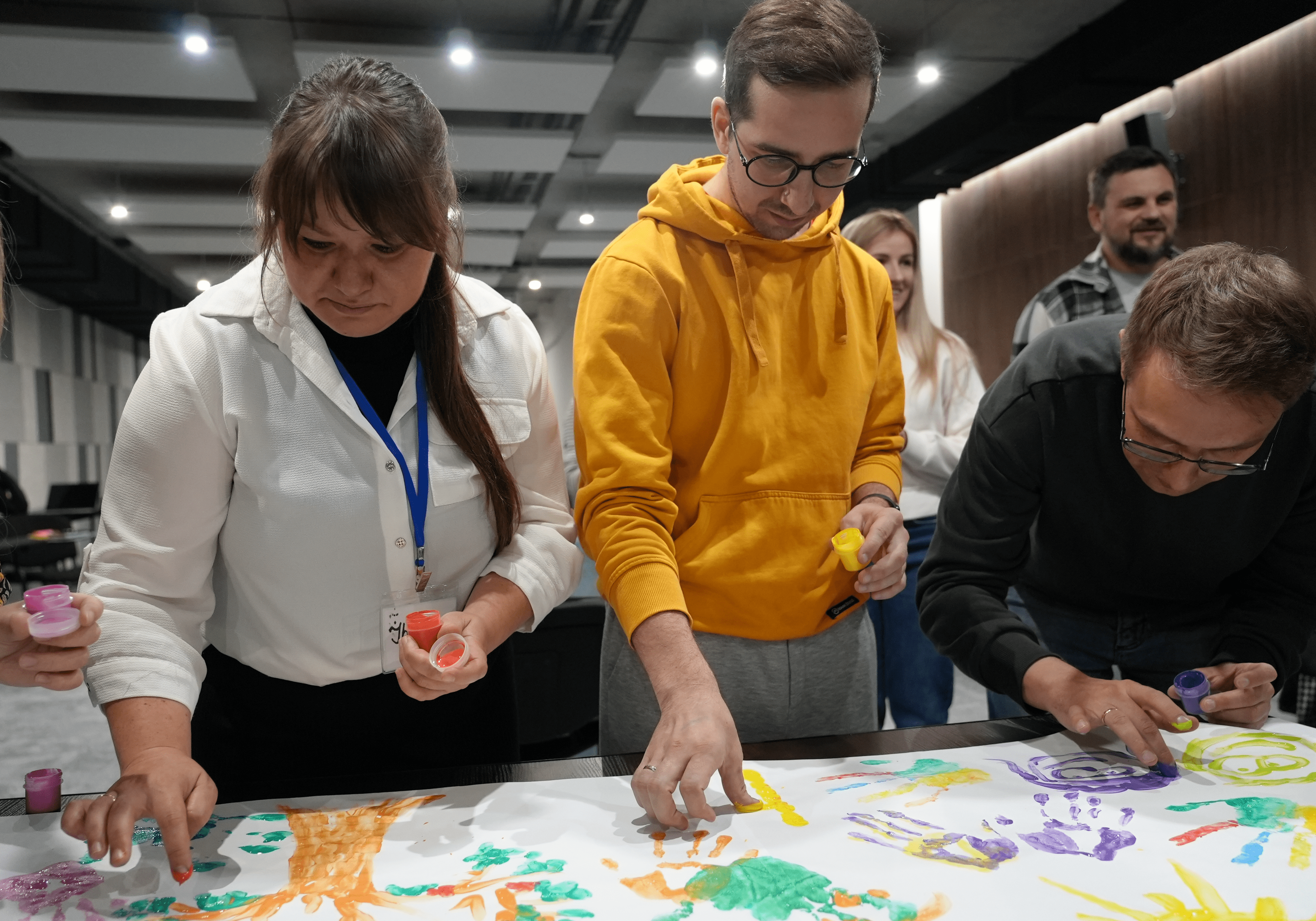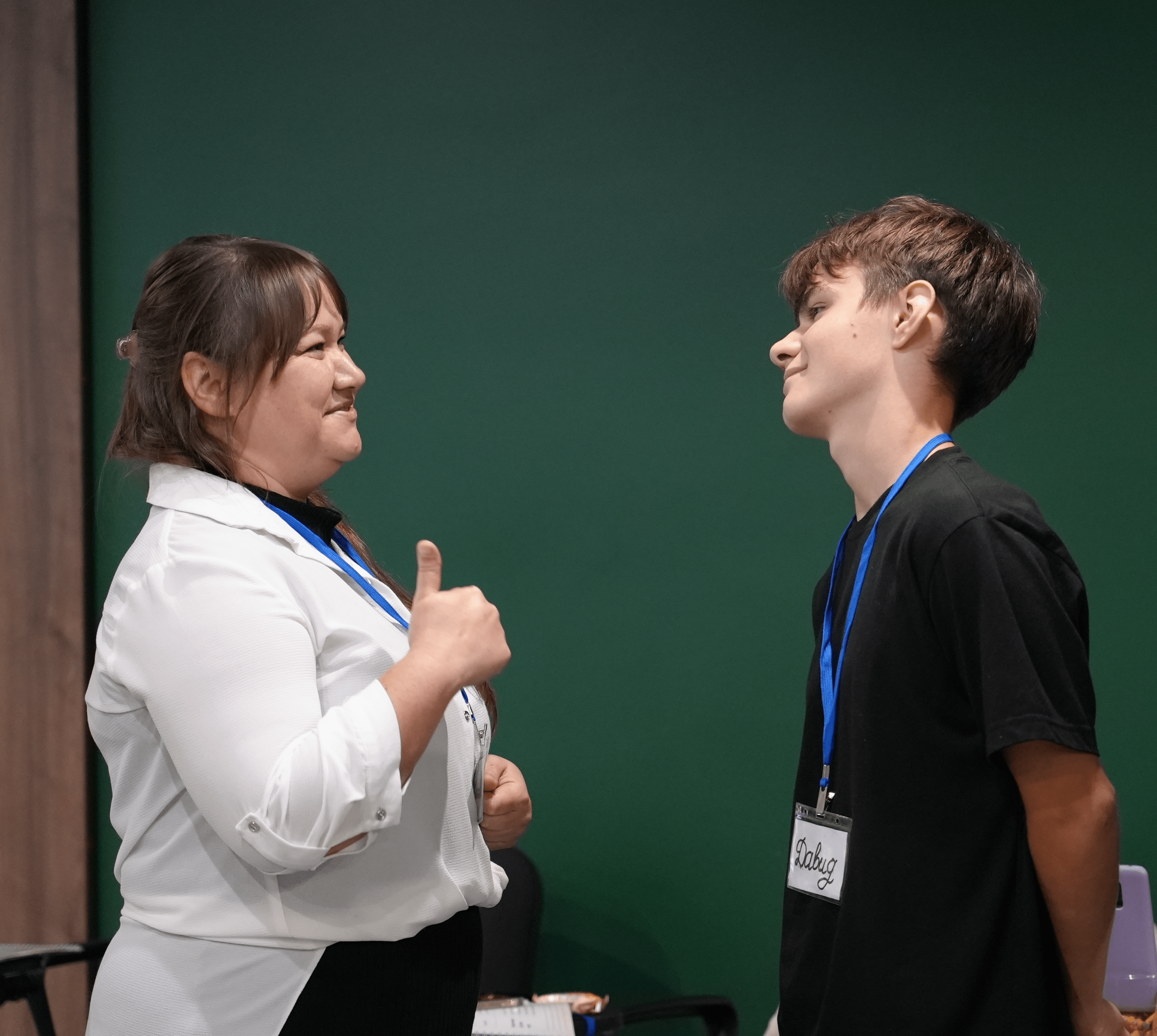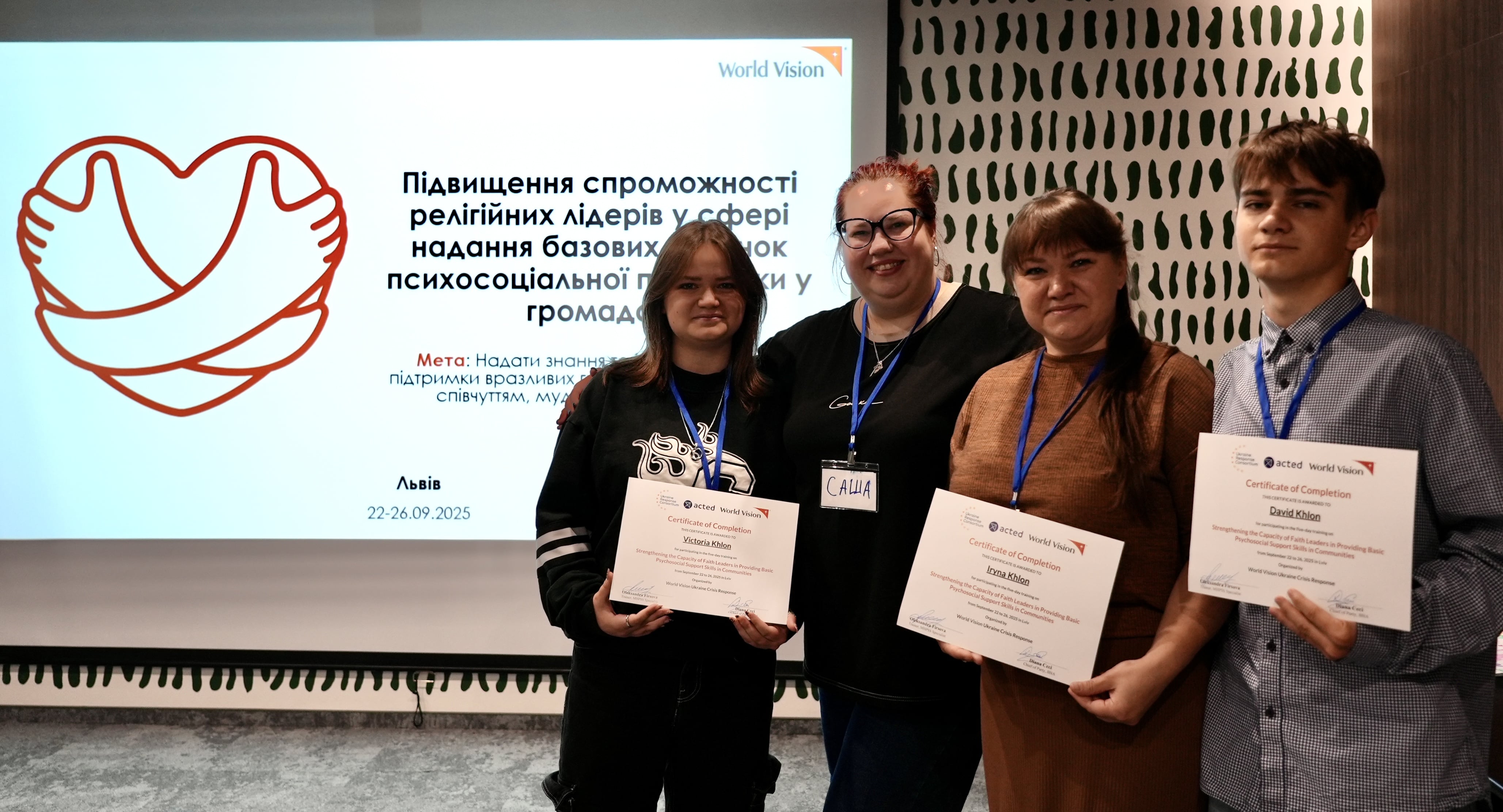Building Resilience Through Faith: World Vision Strengthens Faith Leaders and Communities in Crisis
“Her painting is more than art. It is a silent prayer for her father’s safe return. Tragically, he never saw it,” says Iryna, a faith leader in Lviv, western Ukraine, sharing a story about one of her church members — a 16-year-old girl who patiently waited for her father to return from war. She made a painting for him, but sadly, on the day she finished it, she received terrible news — her father had lost his life.
Iryna is a faith leader at the Church of Christians of the Evangelical faith “Grace” in Drohobych, a city in the south of Lviv Oblast. She took part in the Faith Leaders Training “Enhancing Faith Leaders’ Skills to Provide Essential Psychosocial Support in Communities”, conducted by World Vision and supported by the US Government, ACTED Ukraine and the Ukraine Response Consortium.
As a faith leader, Iryna hears many stories of grief, loss, and hardship every day. She genuinely wants to support her community, but listening to so much pain can sometimes be overwhelming and take a toll on her own mental well-being. That’s why her training with World Vision is so important — it provides her with the support and tools she needs to stay strong.
Supporting faith leaders like Iryna means caring for those who care. When they are equipped and supported, they can nurture hope and resilience within their communities, especially during difficult times. Iryna’s experience reminds us: caring for the helpers enables them to serve sustainably without losing themselves.
“This activity has been a core part of our efforts since the very beginning of the project. It empowers faith leaders to not only understand their own suffering on a deeper level but to also find the strength to address their pain and begin their journey toward healing”
Aligned with World Vision’s faith-sensitive approach to mental health and psychosocial support, these initiatives provide essential support to faith leaders, empowering them to become sources of strength, compassion, and hope within their communities.
“When the war began, I believed my energy was endless. However, living constantly under threat and in conflict, I realised how stressful and exhausting it can be. I recognised that I too needed support. During such great challenges, training and support are essential”.
By integrating faith, spirituality, and mental well-being, we ensure that support respects individual beliefs and leverages the strengths of faith communities. During the training courses, participants gain deeper insights into their own suffering, offering them opportunities to address their pain and work toward healing.
This ongoing partnership with faith leaders highlights the unique and strategic role of faith communities as vital entry points for delivering life-saving protection and psychosocial services.

The Faith Leaders training is a crucial part of the “Providing Multi-Sectoral Humanitarian Assistance to Conflict-Affected Populations in Ukraine” project supported by the US Government, ACTED Ukraine and the Ukraine Response Consortium.
Building on previous sessions, where faith leaders learned important skills to help their communities, this training is a helpful refresher.
“This activity has been a core part of our efforts since the very beginning of the project. It empowers faith leaders to not only understand their own suffering on a deeper level but to also find the strength to address their pain and begin their journey toward healing”, shares Tetyana Mamysheva, World Vision’s Project Coordinator.
In response to participants’ requests, the training covered topics such as supporting widows and assisting war veterans adjusting to life after demobilization. These sessions complemented essential modules on mental health and resilience, including Problem Management Plus, Self-Help Plus, and Social and Emotional Learning, providing participants with practical tools to cope with stress and strengthen community support networks.
A real psychological support comes from walking the same path, not just being an expert — it's about sharing the same shoes.
Problem Management Plus (PM+) is a practical program developed by the World Health Organization (WHO) to help people manage stress, anxiety, and everyday problems. Using simple, evidence-based strategies, it is particularly useful for those affected by conflict, displacement, or trauma.
Self-Help Plus (SH+), also from WHO, is a group-based program designed to improve mental well-being. It offers techniques for managing stress and adversity and can be delivered even by trained non-specialists, making it accessible to communities impacted by war or crisis.
Social and Emotional Learning (SEL) teaches individuals to understand and manage their emotions, build healthy relationships, and make responsible decisions. While traditionally used in schools, SEL is increasingly applied in humanitarian settings to help communities build resilience and support one another in times of hardship.
“Every day, I witness people's grief as they come to our church seeking comfort. I have met widows who have lost all hope and feel indifferent, even towards their own children. I see their pain, and I know I must support them. This is my calling — I cannot imagine doing anything else”, shares Iryna.

“After hearing stories of loss and suffering, I often feel devastated. To replenish my energy and find some peace, I walk in the park, spending time alone in nature’s embrace. Yet, this is not enough. We also urgently need professional support” – she adds.
The training was facilitated by Oleksandra Firsova, Mental Health and Psychological Support Specialist, and was specifically designed for faith leaders — church representatives, community leaders, and others involved in their faith communities.
This is the third training from World Vision Iryna has attended. “Each training is meaningful, but this one feels special for me. I value the chance to discuss urgent issues with a facilitator who truly understands our context. A real psychological support comes from walking the same path, not just being an expert — it's about sharing the same shoes”, she shares.
Faith leaders are often the first to respond to mental health struggles, offering support to those in distress. Their strength and hope are vital in helping communities heal amid the hardships of war.
“When the war began, I believed my energy was endless. However, living constantly under threat and in conflict, I realised how stressful and exhausting it can be. I recognised that I too needed support. During such great challenges, training and support are essential”, shares Iryna.
After the training, a new group of master trainers will be formed to share these important skills in their communities. Supportive supervision, coaching, and mentoring will help ensure safe and reflective practices, improving how services are provided.

Iryna plans to share what she has learned at schools and churches in her community. She has been invited to lead training sessions and talks for students and residents. Now, she knows how to manage her own stress better and how to help others, making her community stronger and more resilient.
Story and photos by Anastasiia Haviuk, Communications Officer